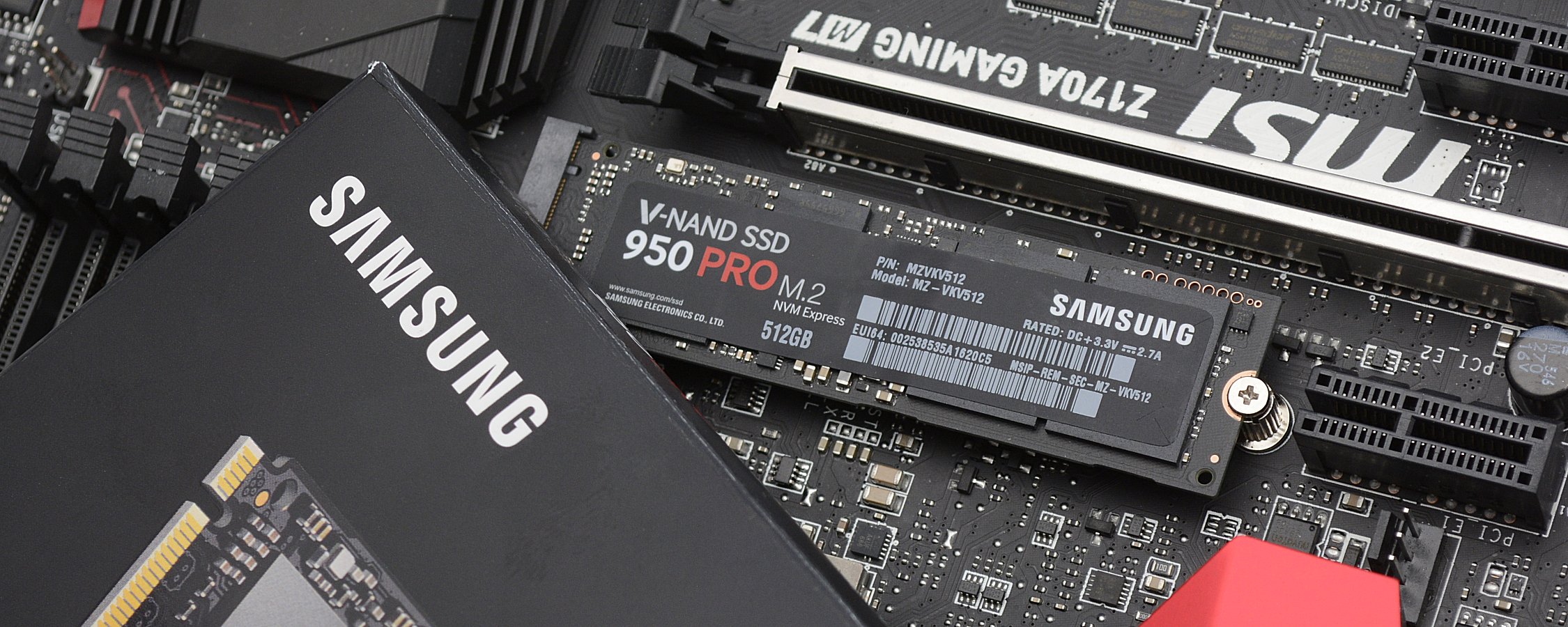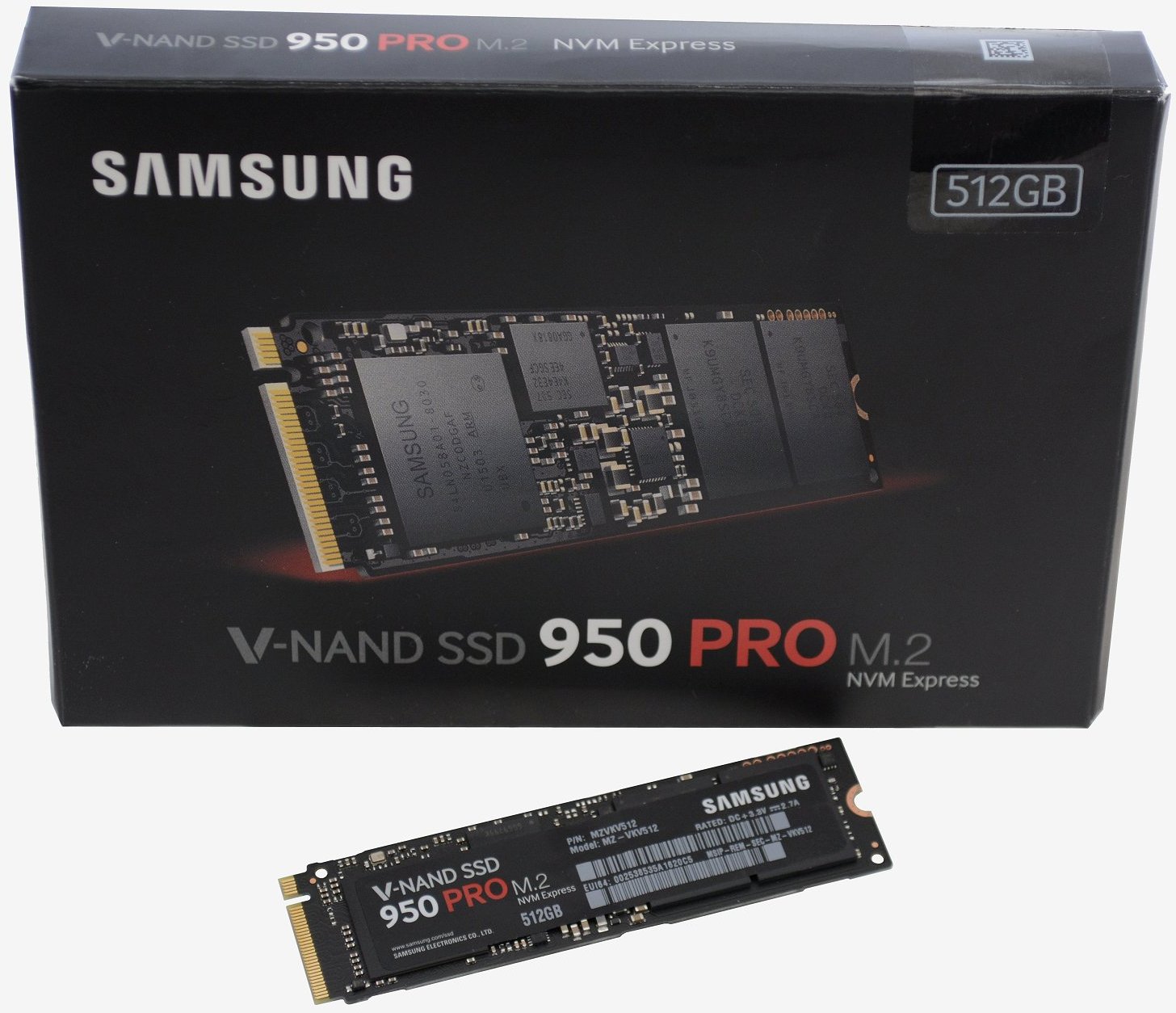The Next Step in Mainstream SSD Performance
Looking back at the performance it's clear Samsung's SSD 950 Pro series is taking the next step in mainstream SSD performance. For the most part, the 950 Pro was unbeatable, though oddly at times it did slip.
Perhaps the most confusing results were those seen in our own custom file copy tests. Starting with the single large file test the 950 Pro delivered pretty much what we expected as it edged ahead of the SM951. However, the program and game copy performance was unexpectedly slow as the 950 Pro was really only able to outpace the SATA SSDs.
We're not sure why that was. We tried several Z170 motherboards but they all delivered the same lackluster performance and we made sure to use the Samsung NVMe driver under Windows 10. We'll have to look further into this anomaly.
After being somewhat deflated by the on-disk copy performance we moved to the application benchmarks and this is where the 950 Pro really blew us (and its competition) away.
Despite having weak game copy performance in the file transfer test, the 950 Pro blitzed our game installation test. Taking just 67 seconds, it smashed the previous best of 82 seconds set by the SM951.
The 950 Pro went on to dominate the rest of the application tests and was also strong in PCMark 7 and PCMark 8.
In Atto Disk Benchmark the 950 Pro demonstrated its amazing sequential read and write performance, proving it could best competition regardless of file size.
CrystalDiskMark's random 4K performance was impressive though the same wasn't true for the 4K-64 thread performance in AS SSD Benchmark where the 950 Pro was much slower than the Intel SSD 750 Series.
Overall, despite a few hiccups, Samsung's SSD 950 Pro looks to be the fastest and best option for extreme desktop users.
While the 950 Pro may be Samsung's new flagship, it's certainly not a replacement for the 850 Pro. The pricing reflects this, as consumers can expect to pay around 50% more for the 950 Pro than the 850 Pro, which remains among the top performing consumer SSDs.
The 512GB model that we tested might be pricey at $350, but it is a bargain compared to the Intel SSD 750 Series 400GB that we reviewed earlier this year, which until recently cost almost $1 per gigabyte.
With the arrival of the 950 Pro Intel was forced to re-evaluate its pricing structure for the 750 Series and as such the 400GB model has been discounted to just $300. Despite that large price cut we still prefer the 950 Pro Series as it's not only faster but also better value.
Even at $300 the SSD 750 400GB comes at a cost of $0.75 per gigabyte whereas the 950 Pro 512GB is $0.68 per gigabyte.
That said, the Intel SSD 750 does have the advantage of greater compatibility as it is available in either a 2.5" model using the SFF-8639 connector or as a half-height PCIe expansion card, making it compatible with any system offering a PCI Express x4 slot or larger.
The Intel SSDs also have the advantage of better cooling to avoid throttling under heavy load and they also offer larger capacities as they aren't constrained by the M.2 size limitations. That said, it's worth noting that the 950 Pro only has NAND flash on the top side of the PCB so a 1TB model should be possible if thermals could be controlled.
Despite all that we much prefer the 950 Pro and its neat little M.2 package. It's hard to look over an SSD that can extract 38GB archives in less than a minute or backup 45GB of images in a little over two minutes. The 950 Pro might be pricey, but enthusiasts will surely cough up the dough and they'll be rewarded with unmatched performance for doing so.
Pros: Uber fast, NVMe support, excellent Samsung warranty, reliability is expected to be great given Samsung's history, suppository size.
Cons: Expect to pay a premium for the extreme performance. Compatibility could be an issue as it requires an M.2 PCIe 3.0 x4 interface.

